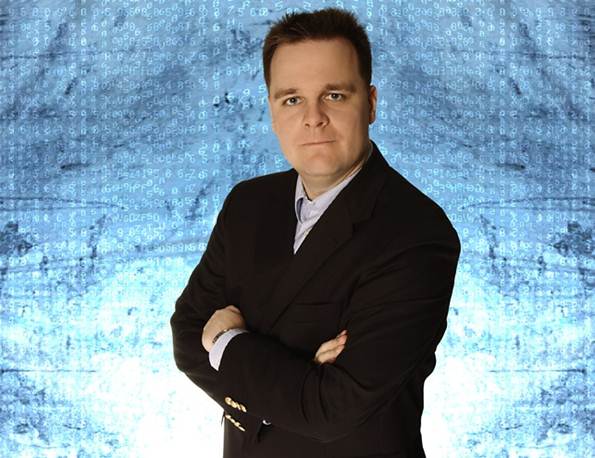A weapon that Apple can wield is that the
value and the reputation of the company combine to enable it to attract and
retain the very best people. At the end of April this year, senior VP Scott
Forstall sold 64,000 units of his vested Apple stock and took home an extra
$38.5 million. He still has about 144,000 shares left. Given its cash balance,
the company would have to slide precipitously over a considerable period before
rewards like this began to lose their lustre.

A
weapon that Apple can wield is that the value and the reputation of the company
combine to enable it to attract and retain the very best people.
None of this, though, provides much of a
bulwark against the most damaging assessment of today’s high-flying Apple: that
it’s a bubble. Insulated by its traditionally affluent target market from the
economic downturn, and buoyed by a tech economy that values Instagram, a
prettified photo sharing service, at a billion dollars (the amount Facebook
will pay for it of US regulators allow it), perhaps Apple is a bubble on a
bubble.
British tech entrepreneur Clem Chambers is
certain of it, and offers five reasons for investors to get out now. They boil
down to:
1. Apple is Apple because of Steve Jobs. Steve Jobs is gone.
2. It’s a toy company. A toy company can’t be the US’ most valuable
company for long – that only happens in humorous science-fiction stories.
3. You have too much of Apple. If you have no more than 5% of your
portfolio in Apple, then fine – why not hold it for a chance of $1,000 a share?
If you have 25% of your portfolio in Apple, you are dangerously exposed.
4. The chart says it’s a bubble. If it looks like a bubble and acts
like a bubble, it’s a bubble. Out the Apple stock chart against the dotcom boom
chart of the Nasdaq, or any other instrument that went up like a rocket, then
came down like a stick. How similar are they?
5. The cab driver is tipping Apple. When cabbies are talking about out
NINJA loans to buy Las Vegas property, you know the real estate boom is over’.

Apple
is Apple because of Steve Jobs. Steve Jobs is gone.
‘If you extrapolate far enough into the
future, to sustain that growth, Apple would have to sell an iPhone to every
man, woman, child, animal and rock on the planet’, Robert Cihra
Not everyone is buying this analysis.
Arthur Pinkasovitch at investor advice service The Motley Fool points out that
it’s incredibly difficult to find an adequate comparison to Apple to make
reliable forecasts. ‘One of the problems with classifying Apple as a value
stock is that the company has to be compared to a direct competitor with very
similar business operations. While such a process is simple for, say, oil and
gas companies, finding a direct comparable for tech companies is slightly more challenging.
RIM is probably the closest full-scale competitor to Apple in terms of the
overall business model. However, since RIM continues to struggle as its
products continue to lose market share, a valid fundamental comparison cannot
be made’.
Law and orders
A current source of uncertainly across the
tech industry is the threat of intellectual property litigation. Apple is
already involved in more than a few lawsuits with a variety of opponents, from
mobile phone rival and manufacturing partner Samsung, over a dizzying range of
alleged patent infringements, to debt-ridden monitor maker Proview, which says
it was cheated in a deal to license the ‘iPad’ trademark. Meanwhile, patent
trolls have also threatened independent App Store developers, prompting Apple
to wade in on their behalf. None of this is unusual: everybody who has anything
to do with technology is suing each other for something.

Florian
Mueller: ‘The primary threat for Apple is commoditization’
Florian Mueller, a patent expert whose FOSS
Patents blog is widely read, told MacUser this really wasn’t such a big deal.
‘The primary threat for Apple is commoditization: if Apple doesn’t manage to
enforce its intellectual property rights effectively against Android device
makers, they’ll get away with imitating Apple’s innovative products’. This is
what provoked Tim Cook to remark in April: ‘I’ve always hated litigation, and
in continue to hate it. We just want people to invent their own stuff. I would highly
prefer to settle versus battle. But it’s very important that Apple not become
the developer for the world’.
Apple also gets sued all the time, but
Mueller believes it can handle that. ‘The only kind of patent that’s really a
threat to everyone in the industry, including Apple, are standard-essential
patents. Motorola force Apple to temporarily remove some products from its
German online store over a wireless-essential patent, but this kind of conduct
raises serious antitrust issues: the European Commission is already
investigating Motorola’s conduct’. Even these critical suits, however, make
little impact on the bottom line. ‘While Apple’s litigation expenses are
certainly substantial, they are but a rounding error on its balance sheet’.
The most seemingly intractable disputes
will come to an end, even if it takes years – but there be some battling before
the setting, warns Mueller. ‘There will be settlements, just like Apple settle
with Nokia a year ago, but such settlements will only serve Apple’s strategic
purposes if differentiation and independent innovation are guaranteed. Apple’s
ability to grow mostly depends on the uniqueness of its products. Apple has to
defend it, and if necessary, it has to keep litigating’.